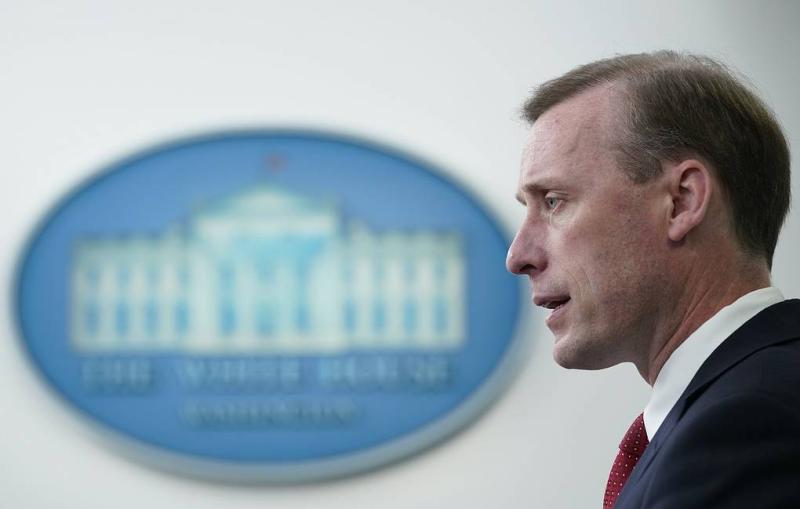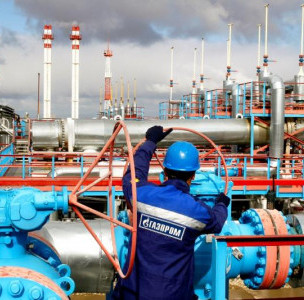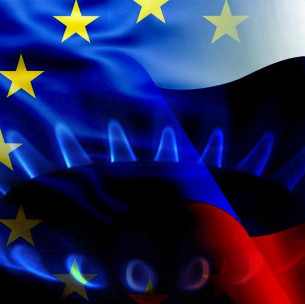
© AP Photo/Susan Walsh/TASS
Top stories from the Russian press on Tuesday, November 8th, prepared by TASS
Vedomosti: Washington, Moscow maintain private de-escalation talks
US National Security Adviser Jake Sullivan has been in private talks with senior Russian officials in recent months, including Russian Presidential Aide Yury Ushakov and Security Council Secretary Nikolay Patrushev, according to media reports. The information was not directly confirmed either in the White House or in the Kremlin. According to experts interviewed by Vedomosti, the ongoing discussions between the two parties are crucial in light of a potential escalation of the situation.
Sullivan may be trying to reduce the risk of a wider conflict over Ukraine and warn Moscow against using nuclear weapons or other weapons of mass destruction, the Wall Street Journal writes. Sullivan also considers it important to maintain open channels of communication between the two powers. He is also negotiating with the Ukrainian side. On November 4, he made an unannounced visit to Kiev, where he met with Ukrainian President Vladimir Zelensky and the head of his office Andrey Yermak. According to the newspaper, the US representative urged them "to publicly signal their willingness to resolve the conflict".
According to Dmitry Suslov, deputy director of the Center for Comprehensive European and International Studies at HSE University, the use of direct communication channels is crucial in the current environment. He believes that in recent weeks, Russia and the US have been on the verge of realizing a number of escalation threats, including the potential use of a "dirty bomb" by Ukraine, the stationing of additional US troops in Eastern Europe, the destruction of the Nord Stream pipelines, and the use of Ukrainian drones to attack the Black Sea Fleet. Suslov believes these to be the likely topics Sullivan may have discussed with Ushakov and Patrushev in order to reach de-escalation.
"Roughly speaking, they could have addressed matters in order to avoid crossing red lines and the start of World War III. Questions of political and diplomatic settlement were most likely also brought up," Suslov said.
Izvestia: Republicans expected to win Congress
Both chambers of the US Congress are likely to come under Republican control, according to recent polls conducted in the United States ahead of the November 8 midterm elections. Since the House of Representatives is almost certain to go to the conservatives, the Senate outcomes remain the biggest unknown, according to US and Russian experts who spoke to Izvestia. As a result of the Democratic Party's slow response to the high inflation rate and the tumultuous economic environment, people in the US have come to trust the Republicans more in resolving these issues.
Many experts have projected that the conservatives will probably win the lower house of parliament. Survey results also support this - in a poll conducted by The Washington Post and ABC News, 50% of respondents indicated they would vote for Republicans and 48% for Democrats in the House of Representatives.
Alexander Domrin, a Doctor of Law, predicts that the Republicans will win the House of Representatives. "The Senate results are intriguing, but it seems likely that the Republicans will also hold a majority there," he told Izvestia.
The current Republican Party's advantage has mostly developed against the backdrop of the nation's challenging economic conditions and the Democrats' inability to address them effectively, Izvestia writes. Thus, according to a Politico/Morning Consult poll, 46% of US citizens feel that the Republicans can handle the country's economic difficulties.
At the same time, experts interviewed by Izvestia disagree on the future of US aid to Kiev. Former Republican senator Bruce Marks claims that the party will continue to help Ukraine militarily and financially. The Republicans, according to Domrin, suggested that they would implement more stringent expenditure controls for Ukraine. In any case, any major shifts in rhetoric toward Russia should not be anticipated, he added.
Nezavisimaya Gazeta: West looks to India as potential peacemaker in Ukraine conflict
Indian Foreign Minister Subrahmanyam Jaishankar intends to hold talks in Moscow on Tuesday with his counterpart Sergey Lavrov. Bilateral issues will be discussed, but the world is more interested in whether India will take on the role of peacemaker in the Ukrainian conflict. According to Nezavisimaya Gazeta, Prime Minister Narendra Modi's rapport with President Vladimir Putin gives India an advantage as a mediator for a potential truce or peace agreement.
The New York Times claims that India has been fostering diplomacy behind the scenes to lessen the likelihood of a potential catastrophe. In particular, India urged Moscow to reach an agreement with Ukraine on the supply of agricultural products and fertilizer to poor countries. India maintained an impartial stance while urging a diplomatic settlement at the UN, refusing to criticize Russia in international forums.
Earlier, French President Emmanuel Macron put forward the idea of holding talks with Modi. This idea was not pursued, but nevertheless, Macron's initiative confirmed that India is seen as a potential peacemaker with access to both sides.
"In theory, India would be able to act as an intermediary. But in practice, Ukraine is not eager to negotiate," Director of the South Asia group at the IMEMO Aleksey Kupriyanov told Nezavisimaya Gazeta. He pointed out that since India views France as one of their key partners, along with Russia, working in tandem with France would be a very comfortable option for New Delhi.
Izvestia: Russia, US seek ways to resume New START talks
A meeting between the Russian and US delegations on the resumption of inspections under the New START treaty may be held in the near future, a high-ranking source familiar with the situation told Izvestia, adding that an advisory commission is being formed. The main problems for the negotiations are the closure of airspace for Russian aircraft which could have been used to carry inspectors and problems with visa issuance to specialists, as well as pilots.
"Contact between the US and Russia within the New START continues. Currently, determining the makeup of the advisory commission is the key concern. If Washington does not create any obstacles, a meeting of the parties to resume inspections might be held soon," the source told Izvestia.
The Federation Council committee of Russia told Izvestia that the strategic significance of this issue explains why New START communication has been maintained despite tense relations between the US and Russia. "These are ongoing interactions, and the parties discuss different facets of the problem. These conversations must go on because it is crucial for fostering a dialogue," Chair of the Federation Council Committee on Foreign Affairs Grigory Karasin told Izvestia. He added that Russia must achieve the desired outcomes from these talks, including the easing of sanctions preventing the restart of inspections.
Dmitry Stefanovich, a research fellow at the IMEMO Center for International Security, highlighted that resuming inspections is an attainable result if there is political will in Washington and Moscow. Meanwhile, an expert in American studies Pavel Sharikov believes that these interactions with Moscow won't be much impacted by the US midterm elections.
Kommersant: UN climate summit kicks off in Sharm el-Sheikh
The main issues of the UN climate conference, which opened last Sunday in Egypt, include finance, adaptation to climate change, and the impact of military operations in Ukraine on the global climate and energy agenda, on a more informal level, Kommersant writes. The newspaper noted that although Russia's official representatives claim the country is not giving up on its commitments, analysts believe its economic circumstances in the coming years may require adjustments to these plans.
Formally, Russia’s special military operation in Ukraine was not on the summit’s agenda, but its impact on the global climate and energy agenda is palpable - many experts fear a shift in focus from climate to more pressing issues such as security, economic downturn, and stability of energy supplies, Kommersant writes. In addition, developed countries are diverting funds intended for solving climate issues in favor of military spending.
The President's remarks at the Valdai Discussion Club meeting and those of his climate advisor Ruslan Edelgeriev constitute an official confirmation by Russia of the urgency of the global and national climate agendas. The country’s authorities expect new forms of environmental collaboration with other areas, particularly the BRICS, and view the global green agenda as neutral even in the context of the current dispute with the West.
However, the future of Russia's adherence to the climate policy is still a matter of debate for the international community, the newspaper writes. So far, with the exception of the long-term Low-Carbon Development Strategy's implementation plan, which has been delayed until 2023, Russia's "carbon" laws have not changed.









